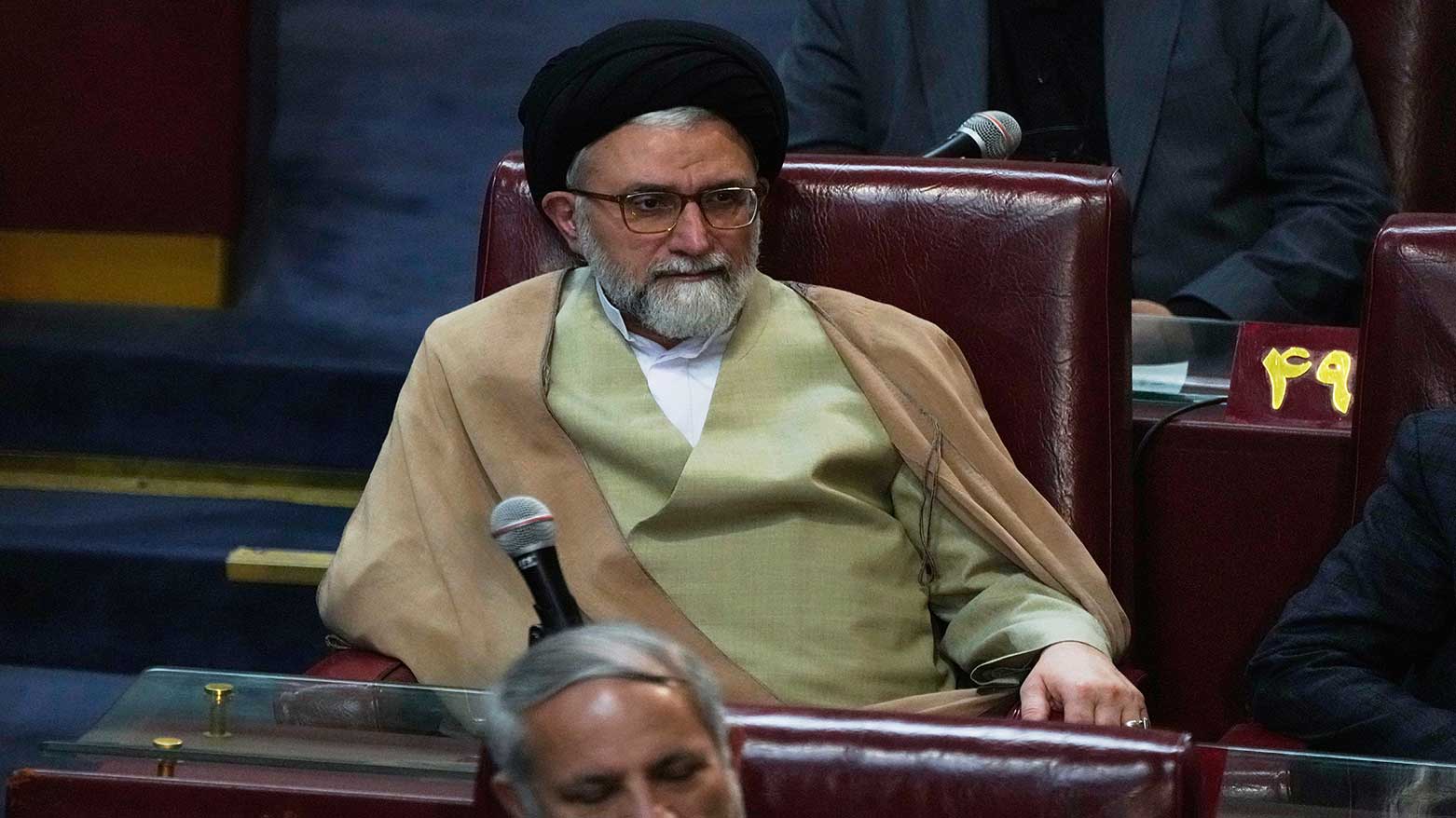Iran Claims to Have Seized Israeli Nuclear Documents, Offers No Evidence
The claim comes as Western powers prepare to push for Iran’s censure at the IAEA meeting, a move that could trigger U.N. sanctions before the “snapback” mechanism authority expires in October.

ERBIL (Kurdistan24) — Iran’s intelligence minister claimed Sunday, without offering any supporting evidence, that the Islamic Republic has seized a vast trove of Israeli nuclear secrets, a declaration that comes as Tehran faces renewed diplomatic pressure over its own nuclear program, according to the Associated Press (AP).
Esmail Khatib, Iran’s intelligence minister, told state media that Iranian agents obtained an “important treasury of strategic, operational and scientific intelligence” from Israel and successfully transferred it to Iranian territory “with God's help.” He claimed that the operation yielded thousands of documents, including files allegedly related to the United States, Europe, and other nations, through what he described as “infiltration” and “access to the sources.”
Khatib, who was sanctioned by the U.S. Treasury in 2022 for directing cyber espionage and ransomware campaigns in support of Iranian state objectives, did not detail how the information was obtained or provide any documentation to support the claim. Iranian state television had made similar assertions on Saturday, also without evidence.
Israel has not commented on the claim. However, AP notes that the country has neither confirmed nor denied the alleged operation. The Jewish state, widely believed to possess the Middle East’s only nuclear arsenal, has in recent months arrested several individuals accused of spying for Tehran amid the ongoing Israel-Hamas conflict in the Gaza Strip.
Observers suggest the announcement may be intended to serve as a symbolic response to a 2018 Israeli operation in which Prime Minister Benjamin Netanyahu revealed what he called a “half-ton” of documents detailing Iran’s nuclear activities. That Israeli disclosure preceded President Donald Trump’s withdrawal of the U.S. from the 2015 nuclear accord with Iran.
The timing of Iran’s claim is significant. Western nations are expected this week to present a resolution at the International Atomic Energy Agency (IAEA) Board of Governors’ meeting, potentially censuring Iran for longstanding noncompliance issues. According to AP, such a move could refer the matter to the United Nations Security Council, opening the door to the reimposition of U.N. sanctions under the “snapback” mechanism — a provision that expires in October.
Meanwhile, Tehran has indicated it will reject a new U.S. proposal after five rounds of negotiations aimed at reviving the nuclear deal, formally known as the Joint Comprehensive Plan of Action (JCPOA). The failure to reach a diplomatic resolution raises the risk of escalation on multiple fronts.
Iran currently enriches uranium up to 60% purity — just below the 90% threshold needed for weapons-grade material. Experts warn that Tehran now possesses enough highly enriched uranium to potentially build several nuclear bombs if it chooses to proceed.
Without a revived deal or alternative diplomatic arrangement, Iran’s already fragile economy could deteriorate further, stoking domestic unrest. Analysts also caution that Israel or the U.S. could carry out long-threatened military strikes on Iran’s nuclear sites, which might provoke Tehran to abandon cooperation with the IAEA altogether and race toward weaponization.
While Iran’s bold assertion of having seized Israeli nuclear intelligence adds another layer of tension to the regional standoff, the lack of verifiable evidence leaves the credibility of the claim in question — and the stakes of the nuclear crisis as high as ever.
